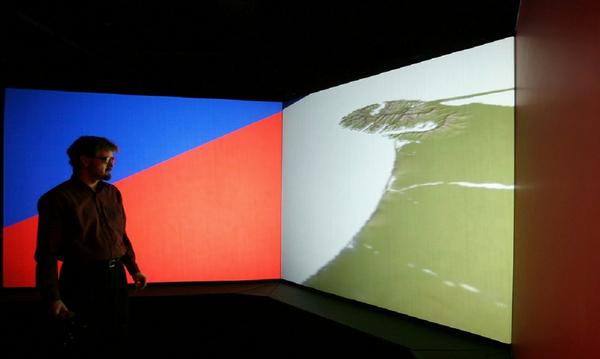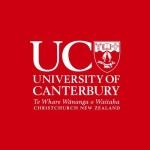UC expert named the 2013 winner of a global virtual reality award

University of Canterbury Professor Mark Billinghurst has been selected to receive the 2013 Institute of Electrical and Electronics Engineers (IEEE) Virtual Reality Technical Achievement award.
The award was established in 2005 and it is awarded annually to recognise an individual for a significant technical achievement in virtual and augmented reality. Professor Billinghurst will be presented with the special award at the IEEE virtual reality conference in Orlando, Florida, on March 19.
He has been one of the world’s leading researchers in augmented reality (AR) which is an important emerging digital technology. AR allows computer graphics to be inserted into a view of the real world and creates the illusion of virtual content becoming part of the user’s real environment.
The IEEE award identifies his research achievements in the field of AR and is the highest and most prestigious technical award in the field of Virtual and Augmented Reality.
Over the past decade Professor Billinghurst has developed many innovative uses of AR technology. Most recently, he has used the technology in Christchurch with the CityViewAR phone application which allows people to point a phone at an empty plot of land and use AR to show a virtual copy of the building that was on the site before the earthquakes.
Last year, Professor Billinghurst received an international award for co-authoring the best paper presented at the International Symposium on Mixed and Augmented Reality (ISMAR) conference in the last decade.
His ISMAR paper presented a computer vision tracking library that allowed the position of a camera to be determined relative to a printed square image. The software library, ARToolKit, has since become the most widely used open source platform for AR applications.
``I explained the use of this tracking library to develop a new type of video conferencing system where images of remote people could be superimposed over the real world. It quickly became the most popular tracking library for augmented reality which has many potential applications, such as allowing doctors to see medical information superimposed over patients.
``I feel pretty humbled to have been recognised again. I never expected my research would impact on the lives of millions of people,’’ Professor Billinghurst said.
